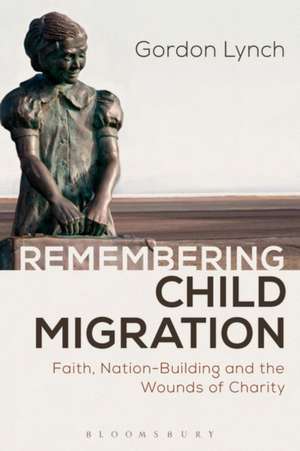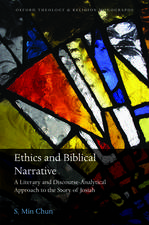Remembering Child Migration: Faith, Nation-Building and the Wounds of Charity
Autor Gordon Lynchen Limba Engleză Paperback – 2 dec 2015
| Toate formatele și edițiile | Preț | Express |
|---|---|---|
| Paperback (1) | 177.77 lei 3-5 săpt. | +52.81 lei 4-10 zile |
| Bloomsbury Publishing – 2 dec 2015 | 177.77 lei 3-5 săpt. | +52.81 lei 4-10 zile |
| Hardback (1) | 713.72 lei 6-8 săpt. | |
| Bloomsbury Publishing – 2 dec 2015 | 713.72 lei 6-8 săpt. |
Preț: 177.77 lei
Preț vechi: 219.24 lei
-19% Nou
Puncte Express: 267
Preț estimativ în valută:
34.02€ • 35.15$ • 28.31£
34.02€ • 35.15$ • 28.31£
Carte disponibilă
Livrare economică 04-18 martie
Livrare express 15-21 februarie pentru 62.80 lei
Preluare comenzi: 021 569.72.76
Specificații
ISBN-13: 9781472591128
ISBN-10: 1472591127
Pagini: 192
Ilustrații: 6 bw illus
Dimensiuni: 156 x 234 x 15 mm
Greutate: 0.3 kg
Editura: Bloomsbury Publishing
Colecția Bloomsbury Academic
Locul publicării:London, United Kingdom
ISBN-10: 1472591127
Pagini: 192
Ilustrații: 6 bw illus
Dimensiuni: 156 x 234 x 15 mm
Greutate: 0.3 kg
Editura: Bloomsbury Publishing
Colecția Bloomsbury Academic
Locul publicării:London, United Kingdom
Caracteristici
Written in a very accessible style, by an author known for his ability to write in an approachable way for students and general audiences and who regularly writes for British media
Notă biografică
Gordon Lynch is Michael Ramsey Professor of Modern Theology at the University of Kent. He has written widely on moral meanings in modern societies, including The Sacred in The Modern World: A Cultural Sociological Approach and On the Sacred.
Cuprins
Introduction1. 'The humane remedy': America and the development of mass child migration2. 'In the children's land of promise': UK child migration schemes to Canada3. 'No placeless waifs but inheritors of sacred duties': UK child migration schemes to Australia4. 'I love both my mummies': moral meanings and the wounds of charity5. Remembering child migration today
Recenzii
This thoroughly researched comparative study shows how the child migration schemes operated in the past by prestigious charitable organisations in the United States and the United Kingdom, once widely admired, are now seen to have caused considerable damage to many of the deprived and disadvantaged children they were dedicated to rescue and redeem. To explain the long-lasting commitment to such programmes, Professor Lynch focuses especially on the moral culture, particularly derived from Christian ethics, which motivated those managing these operations. It also inspired their marketing as moral projects to attract financial support. But the book also shows how the moral certainty of those responsible made them resistant to criticism and unwilling to consider the harm they could be inflicting on the vulnerable. The book raises profound and disquieting issues about humanitarian piety with which childcare and any other organisations bent on 'doing good' today ought to engage.
Gordon Lynch has written a sensitive and searching book that will force its readers to think about how constitutive are our ideas about right societies. Rather than sit in simple judgment of those who forced the migration of hundreds of thousands of children under diverse circumstances, Lynch asks with great interpretive acuity: What now do we do with equal humanitarian fervor and and missionary blindness? Through an expose of the suffering wrought through child migration, this book presses us to think about how suffering is inherent to our bureaucracies, our social theories, and our plots for civilization.
In keeping with Lynch's reading, contemporary organizations would do well to examine not only their moral aims, but also attend to their unintended consequences.
Gordon Lynch has written a sensitive and searching book that will force its readers to think about how constitutive are our ideas about right societies. Rather than sit in simple judgment of those who forced the migration of hundreds of thousands of children under diverse circumstances, Lynch asks with great interpretive acuity: What now do we do with equal humanitarian fervor and and missionary blindness? Through an expose of the suffering wrought through child migration, this book presses us to think about how suffering is inherent to our bureaucracies, our social theories, and our plots for civilization.
In keeping with Lynch's reading, contemporary organizations would do well to examine not only their moral aims, but also attend to their unintended consequences.












